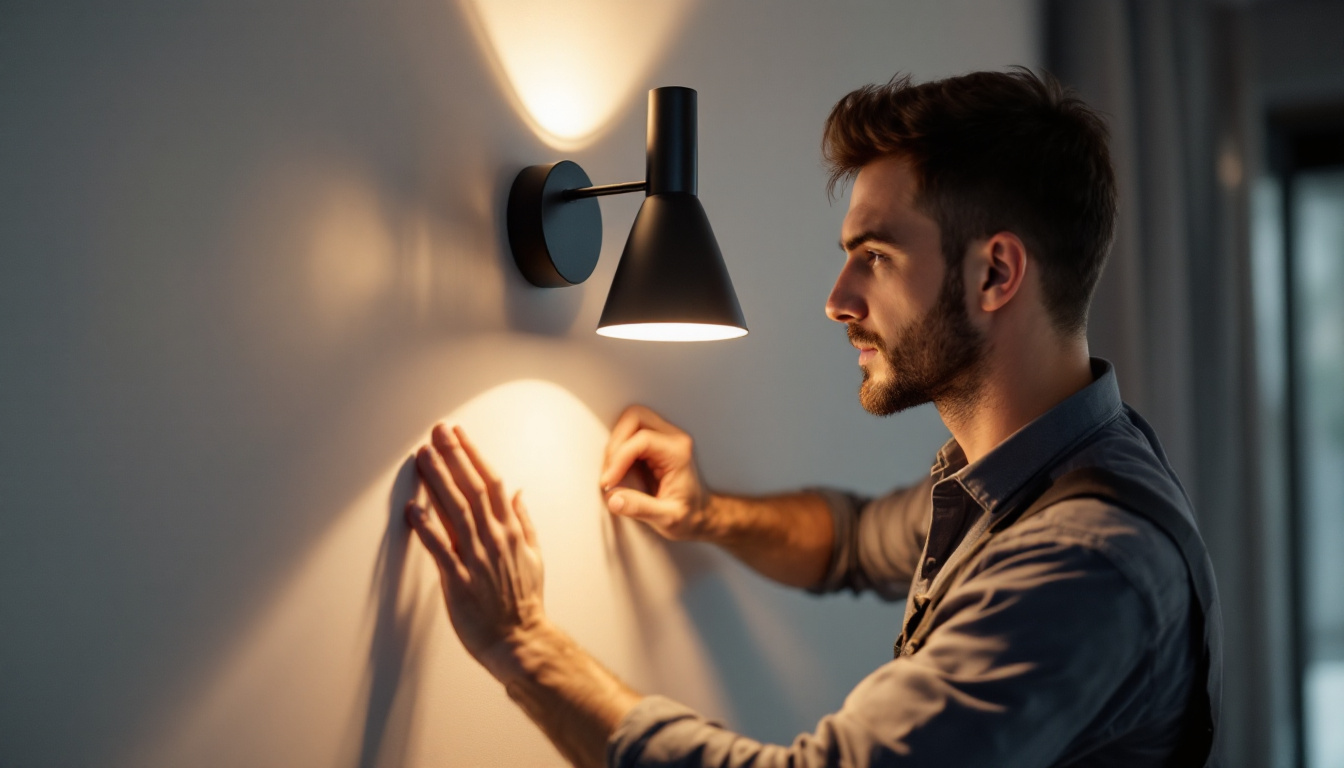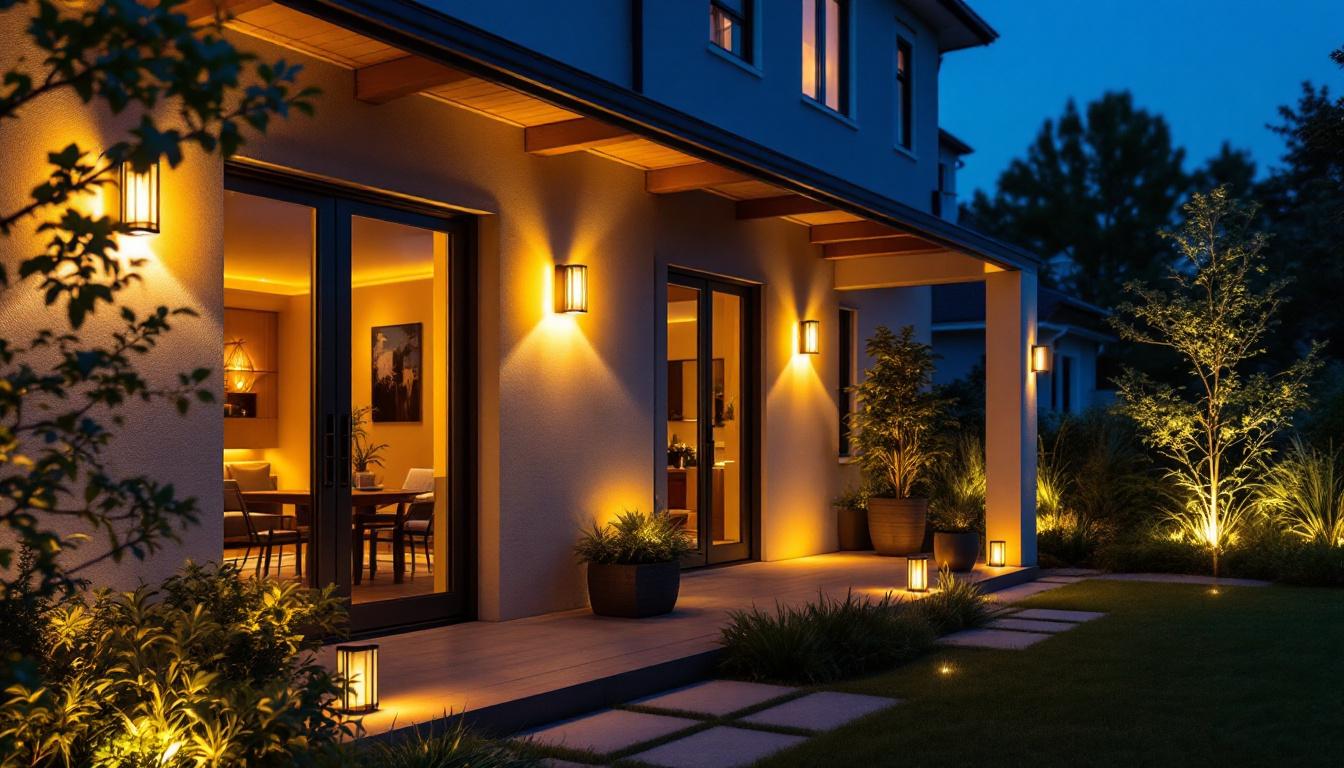
can lights, also known as recessed lights or downlights, have become a staple in modern lighting design. For lighting contractors, understanding the benefits and applications of can lights can lead to significant cost reductions and enhanced project efficiency. This article explores what can lights are, their advantages, and how they can help lighting contractors streamline their operations.
Can lights are cylindrical fixtures that are installed into a hollow opening in the ceiling. They are designed to provide ambient lighting and can be used in various settings, from residential homes to commercial spaces. Their discreet design allows them to blend seamlessly into the ceiling, providing a clean and modern aesthetic. This makes them particularly popular in contemporary interior design, where minimalism and functionality are key. The ability to direct light where it is needed most also enhances their appeal, allowing homeowners and designers to create versatile lighting schemes that can adapt to different activities and moods.
There are several types of can lights available, each serving different purposes. The most common types include:
Understanding the components of can lights is essential for contractors. A typical can light consists of:
Moreover, the installation of can lights can significantly enhance the functionality of a space. For instance, strategically placed can lights can highlight architectural features, artwork, or even create a sense of depth in a room. The flexibility in adjusting the angle of certain trims allows for tailored lighting that can change the ambiance of a space with ease. Additionally, advancements in smart lighting technology have made it possible to control can lights remotely, offering convenience and energy savings through programmable settings and dimming options.
Can lights offer numerous advantages that can significantly impact a contractor’s bottom line. From energy efficiency to versatility, these fixtures can enhance both the aesthetic and functional aspects of a lighting project.
One of the most compelling reasons to use can lights is their energy efficiency. LED can lights consume significantly less energy than traditional incandescent bulbs, leading to lower electricity bills for clients. This not only appeals to environmentally conscious customers but also helps contractors position themselves as providers of sustainable solutions. Furthermore, the longevity of LED can lights means that clients will spend less on replacements and maintenance, allowing contractors to emphasize the long-term benefits of their installation choices.
For contractors, the initial investment in can lights can lead to long-term savings. The reduced energy consumption translates to lower operating costs for clients, making the installation of can lights an attractive option. Additionally, many municipalities offer rebates or incentives for energy-efficient lighting solutions, further enhancing the financial appeal. By educating clients on these potential savings, contractors can build trust and demonstrate their commitment to providing value, which can lead to repeat business and referrals.
Can lights are incredibly versatile and can be used in a variety of applications. They can be installed in kitchens, living rooms, hallways, and even outdoors. Their ability to provide focused lighting or ambient illumination makes them suitable for both residential and commercial projects. This versatility allows contractors to cater to a wider range of client needs and preferences. Moreover, the sleek, unobtrusive design of can lights allows them to blend seamlessly into any decor, enhancing the overall aesthetic without overpowering the existing design elements. This adaptability can be a strong selling point for contractors looking to impress clients with their design sensibility.
Another significant benefit of can lights is their relatively straightforward installation process. Unlike traditional light fixtures that may require extensive wiring or structural modifications, can lights can often be installed in existing ceilings with minimal disruption. This ease of installation not only saves time on the job site but also reduces labor costs, making it a more appealing option for contractors. Additionally, many modern can lights come with features such as adjustable trim and integrated dimmers, allowing for even greater customization and ease of use for clients.
Investing in can lights can also enhance the overall value of a property. Well-placed can lights can highlight architectural features, artwork, or landscaping, making spaces feel more inviting and luxurious. For contractors, this means that clients may be more willing to invest in quality lighting solutions when they see the potential return on investment. By showcasing the transformative power of can lights, contractors can help clients envision the long-term benefits of their lighting choices, ultimately leading to more successful projects and satisfied customers.
While can lights offer many benefits, proper installation is crucial to ensure optimal performance and safety. Contractors must consider several factors during the installation process.
The height of the ceiling and the available space in the ceiling cavity are critical factors to consider. Can lights require a certain amount of clearance for proper installation and heat dissipation, especially when using non-IC rated fixtures. Ensuring that there is enough space will prevent potential issues down the line.
Can lights must be wired correctly to comply with local electrical codes. Contractors should be familiar with the wiring requirements for different types of fixtures, including the need for dimmer switches or smart home integrations. Proper wiring not only ensures safety but also enhances the functionality of the lighting system.
Using can lights can significantly enhance client satisfaction, which is essential for repeat business and referrals. The modern look and feel of recessed lighting can elevate the overall aesthetic of a space, making it more appealing to homeowners and business owners alike.
Can lights can be customized in terms of brightness, color temperature, and beam spread, allowing contractors to tailor solutions to meet specific client needs. This level of customization can create a more personalized experience, leading to higher satisfaction rates.
Properly placed can lights can dramatically improve the ambiance of a space. By strategically installing these fixtures, contractors can create focal points, highlight architectural features, or provide general illumination. This ability to manipulate light enhances the overall experience for occupants, making spaces feel more inviting and functional.
Despite the numerous benefits of can lights, contractors may face challenges during installation and maintenance. Recognizing these challenges and having solutions in place can streamline the process and ensure successful project completion.
One common challenge with can lights, particularly those that use incandescent bulbs, is heat buildup. This can lead to potential fire hazards if not managed properly. Using IC-rated fixtures and ensuring adequate spacing can mitigate this risk. Additionally, opting for LED options can significantly reduce heat output.
Can lights installed high in ceilings can pose accessibility challenges for maintenance. Contractors should consider this during installation, ensuring that fixtures are positioned for easy access. Using adjustable or tilt trim can also help direct light where it’s needed without requiring frequent maintenance.
The lighting industry is continuously evolving, and can lights are no exception. Staying informed about future trends can help contractors remain competitive and offer cutting-edge solutions to clients.
Smart home technology is becoming increasingly popular, and can lights are adapting to this trend. Many modern can lights are compatible with smart home systems, allowing clients to control their lighting through mobile apps or voice commands. This integration not only enhances convenience but also appeals to tech-savvy consumers.
As energy efficiency becomes a priority, manufacturers are developing new technologies to improve the performance of can lights. Innovations such as tunable white lighting and advanced LED options are becoming more common, offering contractors the ability to provide even more energy-efficient solutions.
Can lights represent a valuable opportunity for lighting contractors to enhance their service offerings while reducing costs. Their energy efficiency, versatility, and aesthetic appeal make them a popular choice among clients. By understanding the benefits, installation considerations, and future trends associated with can lights, contractors can position themselves as leaders in the lighting industry.
Incorporating can lights into projects not only improves client satisfaction but also contributes to a more sustainable and cost-effective approach to lighting design. As the demand for modern, efficient lighting solutions continues to grow, can lights will undoubtedly play a pivotal role in shaping the future of lighting contracting.
Ready to take your lighting projects to the next level with can lights? At LumenWholesale, we provide lighting contractors like you with the highest quality, spec-grade can lights at prices that can’t be beaten. Say goodbye to local distributor markups and hello to our direct-to-contractor wholesale rates. Our extensive selection is designed to meet rigorous industry standards, ensuring you deliver reliable and high-performance lighting solutions every time. Plus, with free shipping on bulk orders, you can stock up on premium lighting without worrying about hidden fees or compromises. Elevate your lighting game and give your clients the efficiency and aesthetic they deserve. Discover the best value in lighting today at LumenWholesale.

Discover essential tips and best practices for lighting contractors to effectively install and optimize lighting sconces.

Discover the must-have 2Ft LED lights for lighting contractors—boost efficiency, reduce costs by up to 50%, and enhance project quality.

Illuminate your projects with our comprehensive guide on modern dusk to dawn outdoor lighting.

Discover the transformation of outdoor lamp poles in the lighting industry, from traditional designs to innovative, energy-efficient solutions.